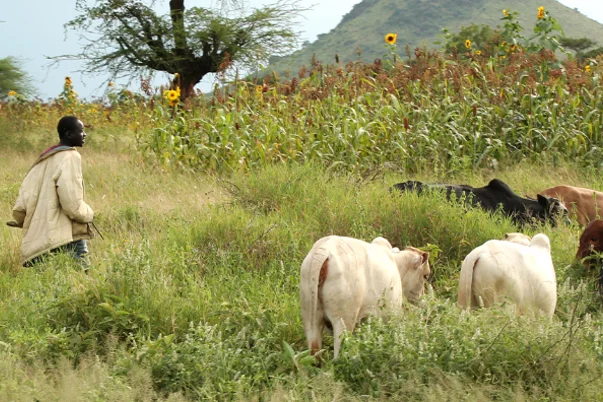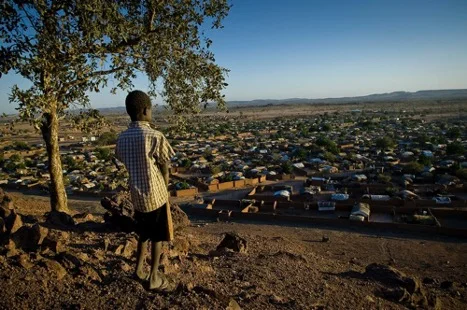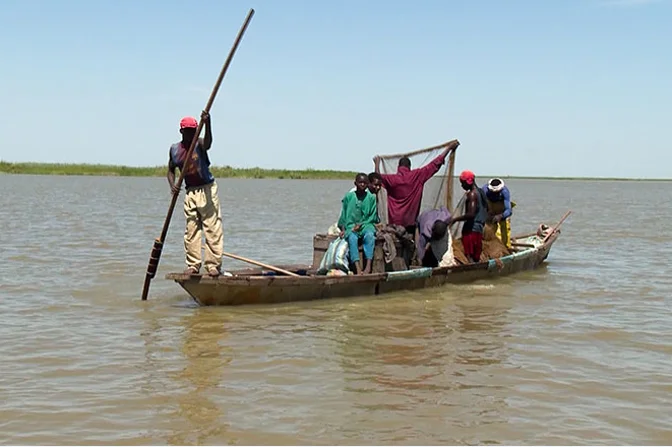Sustainable information and early warning system on food security for Chad

The European Union, FAO and the Government of Chad have officially launched a project to «support the setting up of a national information and early warning system on food security.»
«This system will play an important role in preventing and managing food crises, which are increasingly common in our country,» said Mr. Dangde Laoubele Dama, Chad’s Minister of Agriculture and Irrigation.
The project, with € 4.5 million in funding from the European Union, will be implemented by FAO and the Ministry of Agriculture and Irrigation, together with the Ministry of Planning, Economy and International Cooperation. It will last for 48 months.
A sustainable and functional system
The new system will centralize all data linked to food security and nutrition, so that it can be used in decision-making. It will help to coordinate Chad’s various information systems and will make suggestions to the Action Committee for Food Security and Crisis Management (CASAGC), proposing future initiatives on the basis of information processed.
«Its operating system will make it possible to both target development initiatives and provide crucial early warning, so that the negative impact of shocks to communities most vulnerable to food and nutrition insecurity can be foreseen and attenuated,» explained the FAO Representative in Chad, Mr. Germain Dasylva.
As well as making a valuable contribution at national level, the NIEWS tool will enable Chad to share methodologies and information on food security with countries of the Sahel and West Africa.
«All systems must be sustainable if they are to be effective. The Government has pledged its continued commitment to ensuring that the institutional, material, financial and human conditions exist and that NIEWS can carry out its mission. The Government’s commitment to building on the achievements of NIEWS will therefore be one of the keys to the success of this project,» observed the Ambassador to the European Union Mrs. Hélène Cavé.
Strengthening capacities and collaboration
The support provided involves strengthening the technical and material capacities of information service providers (ISP), at both central and decentralized level. A number of training initiatives are planned to enable ISPs to collect, interpret and transmit information at central level. The central structures will be asssisted in analysing the data transmitted, as well as in participating in regional systems and offering feedback to the decentralized structures.
NIEWS will work closely with NGOs and international organizations involved in collecting data on food security.
Technical assistance will be made available so as to link the ministries’ technical services with NGO activities in the field, especially for the setting up of regional information and local early warning systems. The assistance offered will capitalize on the good practices and approaches of these initiatives, while highlighting the difficulties and constraints encountered.
 Albania
Albania Algeria
Algeria Andorra
Andorra Argentina
Argentina Armenia
Armenia Australia
Australia Austria
Austria Azerbaijan
Azerbaijan Bahrain
Bahrain Belgium
Belgium Bolivia
Bolivia Brazil
Brazil Bulgaria
Bulgaria Cambodia
Cambodia Cameroon
Cameroon Canada
Canada Chad
Chad Chile
Chile China
China Colombia
Colombia Costa Rica
Costa Rica Croatia
Croatia Cyprus
Cyprus Czechia
Czechia Denmark
Denmark Ecuador
Ecuador Egypt
Egypt Finland
Finland France
France Georgia
Georgia Germany
Germany Ghana
Ghana Greece
Greece Hungary
Hungary Iceland
Iceland India
India Indonesia
Indonesia Ireland
Ireland Italy
Italy Jamaica
Jamaica Japan
Japan Jordan
Jordan Kazakhstan
Kazakhstan Kenya
Kenya Kuwait
Kuwait Latvia
Latvia Lebanon
Lebanon Libya
Libya Lithuania
Lithuania Luxembourg
Luxembourg Malaysia
Malaysia Maldives
Maldives Mali
Mali Malta
Malta Mexico
Mexico Moldova
Moldova Monaco
Monaco Morocco
Morocco Netherlands
Netherlands New Zealand
New Zealand Nigeria
Nigeria North Macedonia
North Macedonia Norway
Norway Oman
Oman




